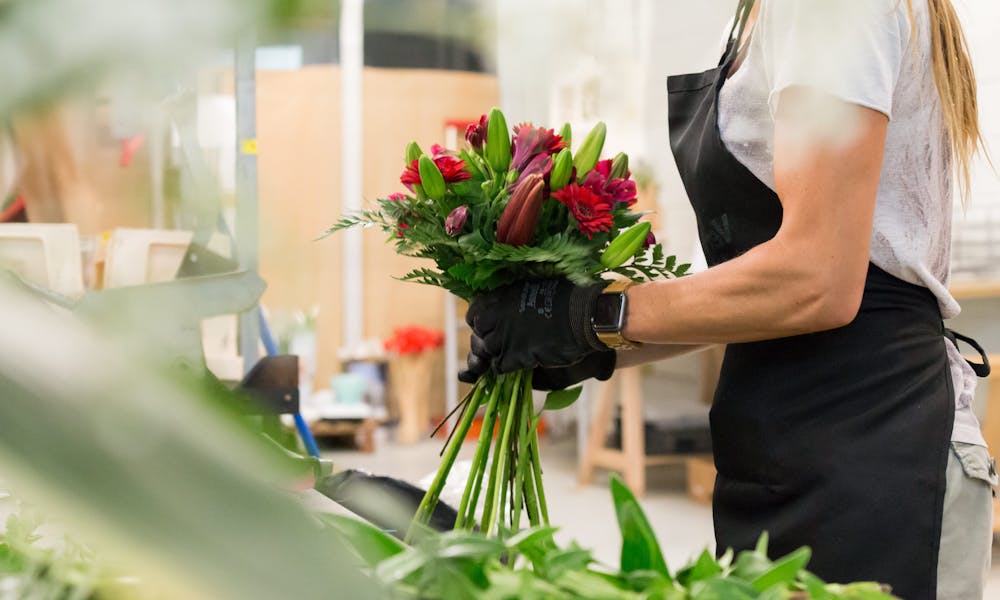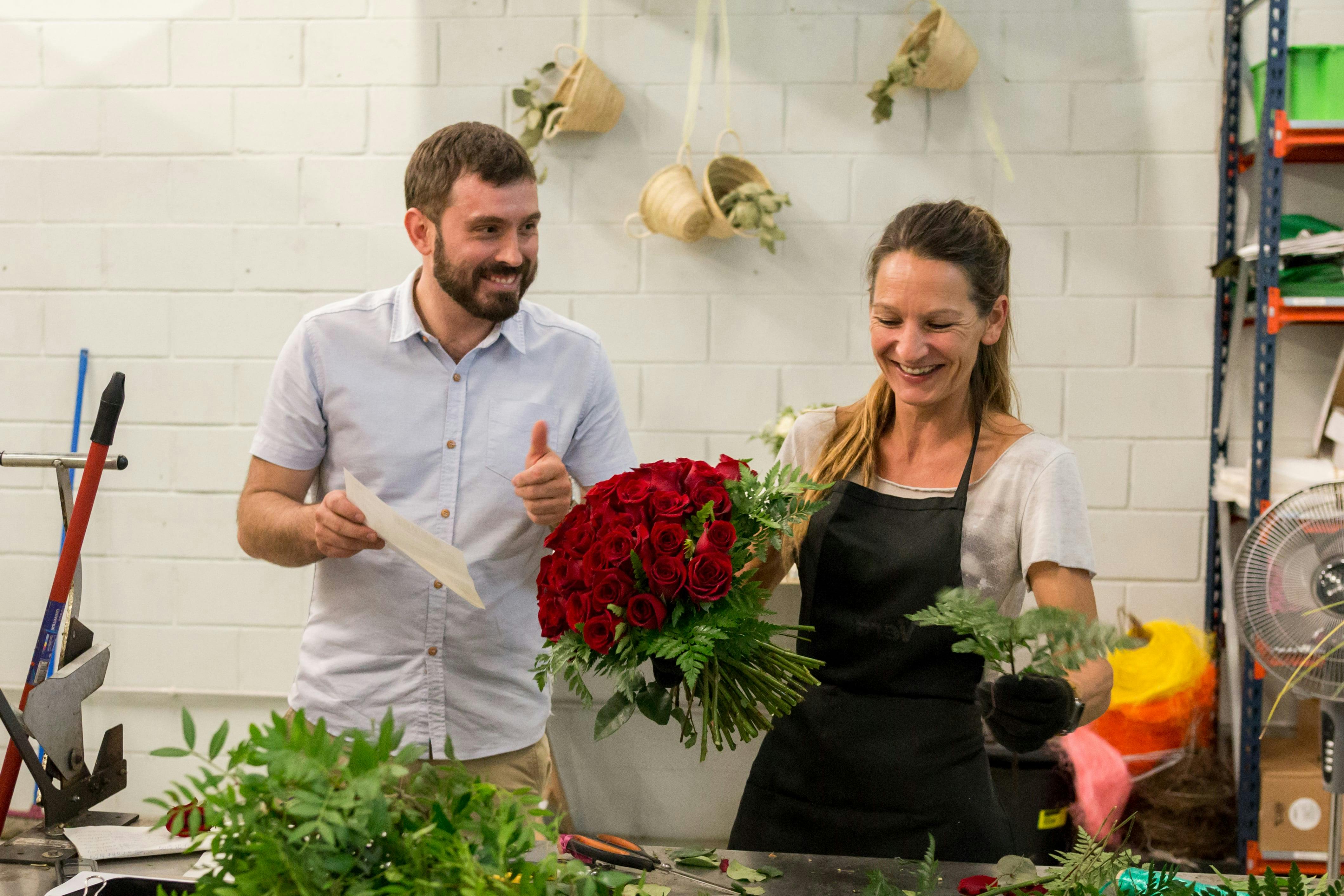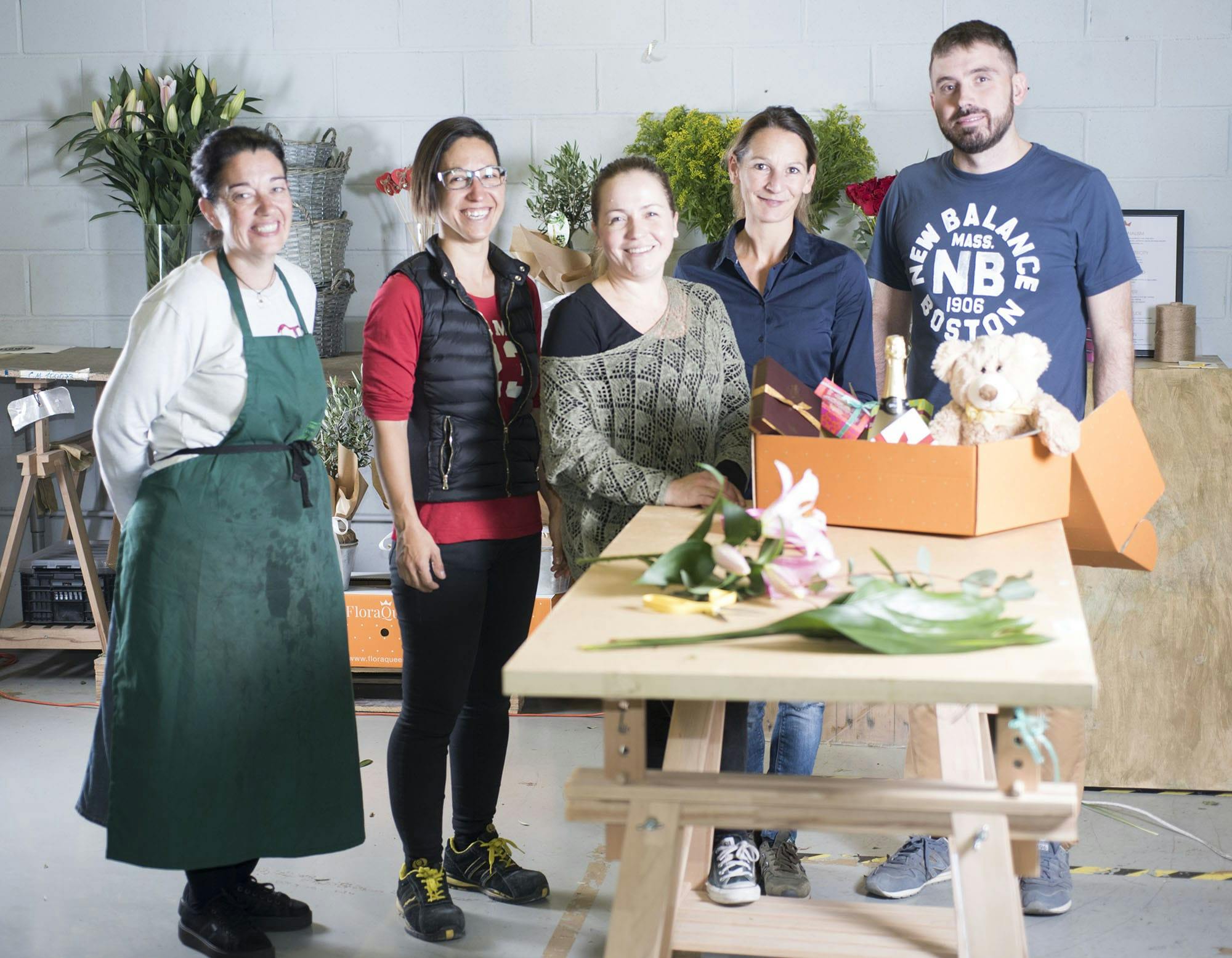Ask Aureli: Why are Flowers Expensive?

Like most of our customers and flower lovers in the world, you have probably asked yourself “why are flowers expensive?. This is a question we spent some time answering on this blog recently but, today we bring you a little more detail from one of our own experts. We interviewed Aureli Nieto, Director of Production and Product Development at FloraQueen, with more than 8 years of experience as a florist, who explained the process of buying and selling flowers. Our flower guru has all the answers!

Question: What is the process of buying flowers at FloraQueen?
Answer by Aureli Nieto: We carry out different procedures to buy our flowers. On the one hand, we buy local products directly through the Mercat de la Flor in Barcelona. On the other hand, we buy flowers from Dutch suppliers, according to the sales forecast and based on the weekly data. These flowers are a mix of those produced in the Netherlands and flowers imported from other countries.
Finally, we also buy flowers from a local importer who brings roses directly from Ecuador and Colombia, two of the world’s largest producers of this type of flower.
Q: What happens at a flower auction?
A: The truth is that flower auctions are like any other auction of fresh produce. The producers collect their flowers and offer the items in the auction. The different wholesale suppliers buy whole batches of flowers and, later, offer them to their customers.
The freshly cut flowers are kept in a cold chain and provided with the right nutrients in and water to feed them correctly and to keep them better preserved. It should be noted that this is a very fast process so that the flowers are kept in the best possible condition. Once cut, they are taken to the auction and distributed among the buyers in a matter of very few days. There are more resistant varieties such as chrysanthemums, which can be kept cold and without water.

Q: How often do you buy flowers in these auctions?
A: The auctions are held several days a week. The producers cut the flowers in time so that they are available on the days when the auctions take place.
Q: How do FloraQueen florists choose the best flowers?
A: At FloraQueen we choose the most resistant flower varieties to ensure their attractiveness for as long as possible. We select the flowers that will be more durable and appeal to the aesthetic taste of our clients. Our main objective is that the client has a satisfactory experience. As a result, we always prioritise quality, aesthetics, size and durability. In any case, we are also testing new varieties that come to the market to discover new options that allow us to innovate and always stay at the forefront of the sector.
Q: What tend to be the most expensive and cheapest flowers at an auction?
A: The price of each type of flower is totally dependant on the time of year and the law of supply and demand. For example, red roses are much more expensive on Valentine’s Day than in June, when their global consumption begins to fall. But the truth is that the price is influenced by a multitude of factors. There may be cases in which a really abundant harvest of a type of flower reduces its price.
It could also be that a rainy season in Ecuador damages its roses due to the humidity and, when part of the harvest is lost, the roses increase in price a lot. For example, the recent hurricanes in the United States caused a decline in American demand for flowers. So as a result, the production surplus is being redirected towards Europe and at a much cheaper price.
As for types of flowers, in general, oriental lilies are usually among the most expensive, while gerberas are the queens of affordability for a large part of the year.

Q: What makes one flower more expensive than another?
A: As we have already mentioned, it is about supply and demand and other factors such as the difficulty of producing each type of flower. Some varieties of roses are increasing in price because the mother roses of the crops, that is, the plant itself, is ageing and producing fewer roses than before.
Q: Besides the cost of the flowers themselves, what else is added to the price that ends up costing a bunch?
A:Flowers are considered a luxury product, partly because they are not an essential item, but, above all, because they have traditionally been associated with values such as exclusivity and status. As we have seen, it is an extremely delicate product with a short life, and a life in which different intermediaries interact with it at many different stages and where its state depends on lots of variables such as the climate.
At FloraQueen we have the mission to offer the highest quality flowers at a reasonable price. For this reason, we work with trusted suppliers that help us identify the best varieties directly with the producers. Likewise, the market forces us to always be in an active search for the best options and to make each purchase with the utmost professionalism.
We always try to favour flowers produced from local growers and, if we have to buy from other sources we always choose the one that guarantees the best quality of the product and the best floral experience for the client.
Every day we put all our effort into achieving this balance, as we are passionate about flowers and we want to share this feeling with our customers. We believe that experience is what counts, after all, enjoying a bouquet of flowers for a whole week is priceless.

We totally agree with you, Aureli ? and thank you very much for sharing your floral wisdom with all of us.
FloraQueen has been delivering smiles and stunning bouquets for over 10 years. Thanks to the efforts of those like Aureli we are able to deliver quality flowers to over 100 countries worldwide! For more information about FloraQueen’s range of beautiful fresh bouquets for all occasions click here.

